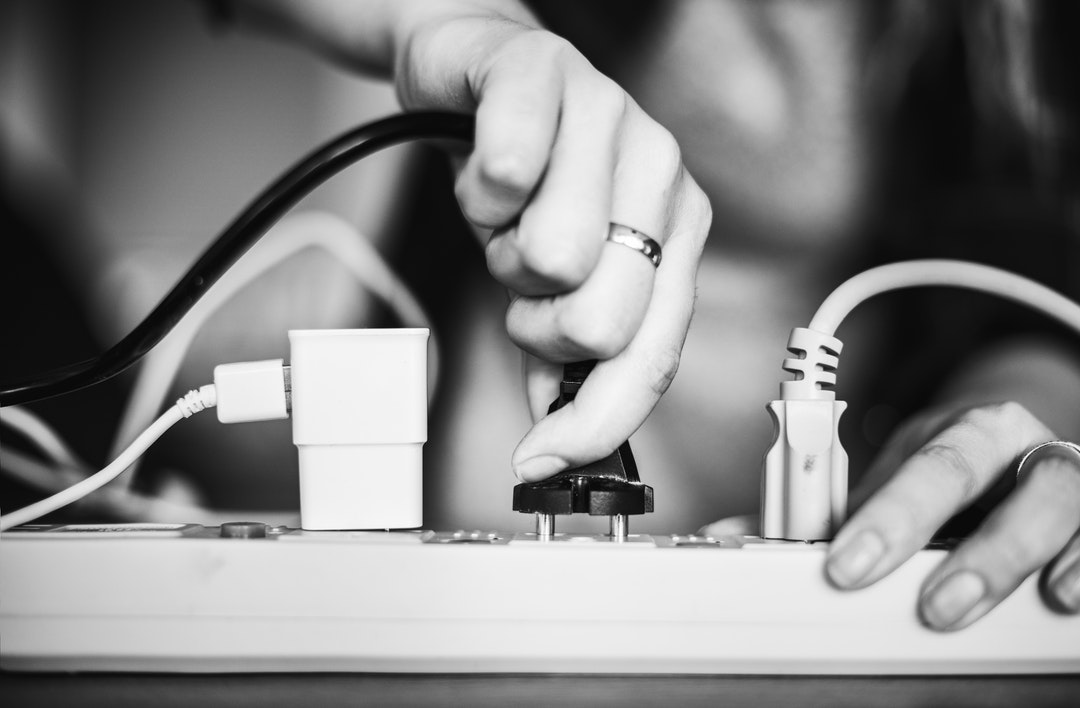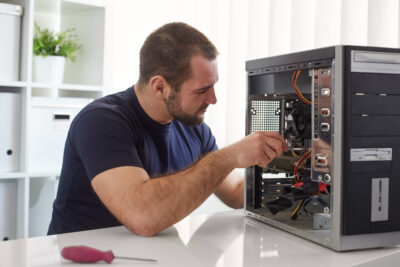As a property owner, you have an obligation to maintain your home. There are some elements you can’t control, but others, such as electricity, you can.
While keeping an eye on your appliances is key, it’s also important to know when there’s an underlying problem rather than treating everything at face value.
But how do you know when you need a professional? What kinds of electrical issues do you need to look out for?
If you want to avoid a major catastrophe, then read on. Be aware of these common electrical problems and how to prevent them from causing more trouble later down the road.
1. Circuit Breaker Tripping Frequently
Usually, this occurs when too many appliances are plugged into one circuit, or currents exceed the capacity of a circuit. Overloaded circuits or circuits that are carrying excessive current can cause the breaker to trip. Exposed or overloaded wiring, outdated circuits, and water damage are also usual culprits.
If the circuit breaker trips repeatedly, it is important to have an electrician inspect for possible wiring problems and replace the breaker if necessary. A professional electrician should also inspect for faulty appliances or worn/damaged cords and inspect any large appliances for worn or defective components.
2. Flickering Or Dimming Lights
Flickering or dimming lights are one of the most common electrical problems to look out for in your home. Flickering lights can happen when the circuit cannot handle the amount of electrical current present and need to be replaced.
Dimmer lights may indicate that the bulbs or fixtures may need replacing, or that there is a short in the wiring. It could also mean that the electricity may be overloaded and the circuit needs to be repaired or replaced.
3. Outlets Not Working
Outlets not working can typically be fixed by checking a circuit breaker. If the outlet in question has a GFCI (Ground Fault Circuit Interrupter), then it could be tripped. To reset this, press the reset button. If the outlet is still not working, the outlet itself may be broken and should be changed by a qualified and experienced electrician.
If circuit breakers are tripping frequently and outlets are not working, it could be a sign of a more serious wiring issue. This should be checked out by a licensed electrician.
4. Overloaded Circuits
When an electrical circuit receives more current than it was designed to handle, it becomes overloaded and can cause electrical problems. If you notice that a light flickers or a switch trips when you plug something in, it could be a sign of an overloaded circuit and should be inspected by a licensed electrician.
To prevent overloaded circuits, don’t plug too many appliances into the same outlet. Use safety devices like surge protectors, and never plug a space heater into an extension cord. Stay safe and know the signs of an overloaded circuit.
5. Burning Smell From Outlets Or Switches
Burning smell from outlets or switches is a common electrical problem that can cause serious damage if left unchecked. If you smell burning from any outlets or switches in your home, unplug all electrical devices immediately, as this could be a sign of an electrical short caused by either an overloaded outlet or a wiring fault.
Check the circuit breaker to see if it has been tripped and reset it if it has. If the burning smell continues, contact an electrician, as they can determine the underlying cause and make any necessary repairs.
6. High Electricity Bills
High electricity bills are often indicative of underlying electrical problems in the home. Common electrical problems to look out for include old wiring that’s not up to code, single pane windows that aren’t air sealed, a clogged HVAC filter, or a faulty appliance or light fixture.
Inefficiencies in electrical appliances and fixtures, such as wiring and lighting, can contribute to higher electricity bills. To prevent such problems, it’s important to have an electrical panel inspection done regularly to identify any issues and have them repaired right away.
For windows, homeowners should install double-pane windows with an effective insulation rating, as these promote energy efficiency. Additionally, make sure all appliances, air vents, and air ducts are regularly inspected and maintained to increase energy efficiency.
7. Electrical Shocks Or Tingling Sensations
Loose wiring, worn-out electrical receptacles, and damaged power cords are some of the most common culprits. Any of these problems can lead to electrical shocks or tingling sensations. If you experience any of these symptoms, contact a qualified electrician right away to ensure your home is safe.
An important safety tip is never to touch anything while feeling an electrical shock or tingling sensation. If this is the case, flip the switch of your circuit breaker right away to ensure no further damage occurs. If you notice any frayed wiring, loose-fitting electrical receptacles, or exposed wiring, quickly call a professional to have it fixed correctly.
8. Buzzing Or Humming Noises From Electrical Systems
These sounds indicate that something is wrong with the electrical outlet or wiring. Buzzing can also be caused by a loose connection in a switch or receptacle, allowing air to cross and create a buzzing sound. Loose connections can also cause sparking, sparks that ignite to create a fire or cause a power outage.
Additionally, hot electrical wiring can cause a humming sensation or buzz and could start a fire if not promptly resolved. If you hear a buzzing or humming sound coming from your electrical systems, it is important to get it checked out by a licensed electrician as soon as possible.
9. Electrical Appliances Malfunctioning
Electrical appliances such as washing machines, water heaters, and refrigerators can all suffer from electrical faults. One of the most common problems is worn wiring and loose connections. This can cause the appliance to malfunction or even become a fire hazard.
It is important to regularly check wiring throughout your home and ensure that all electrical outlets are in good condition and free from defects. Other electrical appliance malfunctions can include power surges, overloads, short circuits, and grounding issues. To ensure the safety of your family and property, contact Denys Electric to inspect and make repairs as needed.
Check These Electrical Problems In Your House
Electrical problems can be dangerous and potentially costly, so it’s important to keep an eye out for them. Be sure to test your outlets regularly and call a professional for any electrical issues. Remember, safety is the number one priority when it comes to electricity. Contact an experienced electrician today if you notice any irregularities!
For more home improvement tips and resources, check out our blog!










